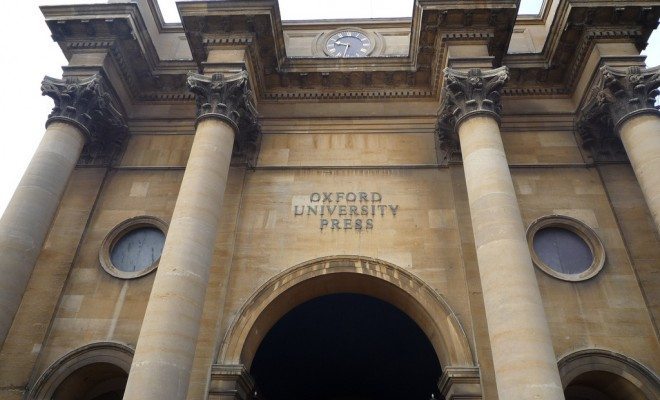 Image courtesy of [Duncan Hall via Flickr]
Image courtesy of [Duncan Hall via Flickr]
Schools
Oxford University Press Bans the Mention of Pork and Pigs
In the aftermath of the terrorist attacks in Paris, various governments have come together in support of the freedom of expression. Most notably, world leaders attended a rally in Paris on January 11, and various members of Congress raised number two pencils into the air during President Obama’s State of the Union address last week.
Global media has also supported freedom of speech. In particular, in the United States, Publishers Weekly published a tribute to freedom of expression in its most recent issue that ran on January 19, seen here. Moreover, Publishers Weekly started a Je Suis Charlie campaign in which media companies could purchase full-length and half-age tributes that display the company’s name and logo. One hundred percent of the contributions for this campaign are donated to international nonprofits dedicated to freedom of expression, such as the American Booksellers for Free Expression, International Federation of Library Associations, International PEN, International Publishers Association, and the National Coalition Against Censorship.
With that said, some media companies have taken a step back. Last week, Oxford University Press announced that its authors should not mention the words “pork,” “sausage,” or “anything else which could be perceived as pork,” according to the International Business Times, to avoid offending Jews and Muslims. OUP claims that it made its decision to hopefully sell more books by taking global cultures into consideration.
While being sensitive to other cultures is noble, Oxford University Press’ ban is by far the wrong thing to do. The publisher is tied to Oxford University, which is arguably the most prestigious university in the world. Universities–western universities in particular–are traditionally places that foster debate and open discussions, where professors and students are free to speak about controversial topics and words. So for the publishing arm of a university to prohibit the words “pork,” “sausage,” or any mention of pork in its books is ludicrous. Professors and authors constantly write about offensive words in scholarship. In particular, authors in the humanities may attempt to write books and articles that deconstruct distasteful words culturally and historically. These books and articles are keys to how we understand the world around us. Although words such as racial epithets, for example, may be unpleasant to read or write about, they do unfortunately exist, and authors who attempt to confront these words through scholarship make society better by helping readers become more empathetic and sensitive to others. The same goes for innocuous words like “pork” and “sausage.”
Moreover, the OUP ban is the decision that terrorists desire. Although the publisher’s decision is allegedly to sell more books around the world, its decision came just days after the Paris attacks. Thus, readers may not think of Oxford University Press’ gallant pursuit to curb offending cultures in its book, but may think that Oxford University Press surrendered to the terrorists who so vehemently oppose freedom of expression.
Oxford University Press should end its ban. There is too much at stake for freedom of expression globally. The terrorists cannot win.








Comments